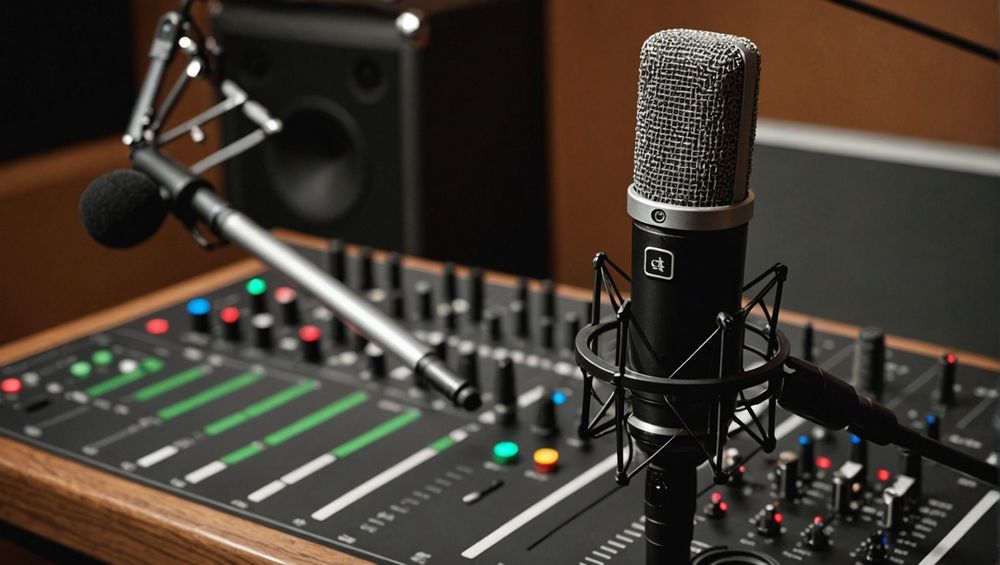Choosing between a wired microphone and a wireless microphone largely depends on your needs and specific use cases. Both types have their unique advantages and disadvantages. Wired microphones are known for their reliability and sound quality, while wireless microphones offer freedom of movement and convenience. In this article, we will explore the differences between the two, helping you make an informed decision based on your sound needs.
Understanding Wired Microphones

Wired microphones have been in use for decades and are a reliable choice for many professionals. They operate by connecting directly to an audio interface or mixer, using cable connections that ensure stable and high-quality audio transmission. One of the significant advantages of wired microphones is their ability to deliver superior sound fidelity without the risk of interference that can occur with wireless systems. Additionally, wired microphones do not require batteries, making them a more hassle-free option in terms of power supply.
However, the functionality of wired microphones can be somewhat limiting, especially in situations where movement is necessary. Artists, speakers, or presenters may find themselves hindered by the cables, which could lead to tripping hazards or restricted mobility. On top of this, setting up wired microphones often involves dealing with a tangle of cables, which can be time-consuming and complicate the setup process. Moreover, outdoor and large venue applications may benefit less from wired microphones due to cable management challenges and potential signal loss over long distances.
The Advantages of Wireless Microphones

Wireless microphones provide a level of freedom that wired microphones cannot match. They allow performers to move freely without being tethered to a sound system. This freedom can greatly enhance the performance experience, whether you are a musician, a speaker during a conference, or a host at an event. Wireless systems transmit audio signals via radio frequencies, which eliminates the need for cumbersome cables. This modern design leads to cleaner setups and allows for more freedom in navigating any stage or performance area.
Despite their convenience, wireless microphones come with certain drawbacks. The most significant concern is the potential for audio interference. Because these microphones use radio frequencies, they are susceptible to environmental interference, especially in crowded areas where numerous devices operate on similar frequencies. Additionally, wireless microphones require batteries, meaning you need to keep a stock on hand and ensure they are charged. This can be an inconvenient aspect for long events, where battery failure could disrupt the performance.
Comparison of Sound Quality
When it comes to sound quality, wired microphones generally have the upper hand. Here are some attributes that highlight this comparison:
- Signal Integrity: Wired microphones offer a straightforward connection, resulting in clear and consistent audio.
- Dynamic Range: Many wired options have a wider dynamic range, enabling a more natural sound.
- Limited Interference: Unlike wireless systems, wired microphones aren’t prone to frequency interference which can distort the sound.
- Latency Issues: Wired microphones do not experience latency, ensuring real-time audio transmission.
Wireless microphones, when of high quality, can deliver excellent audio. However, achieving that same level of fidelity may require a significant investment. Any performance or recording is only as good as the equipment you use, and both wired and wireless options can vary widely in performance levels depending on the brand and model.
Choosing the Right Microphone for Your Needs
Deciding whether to use a wired or wireless microphone largely depends on the specific situation and your personal preferences. To assist with the decision, consider the following factors:
- Usage Context: Think about where you’ll be using the microphone—gig performances, studio sessions, presentations, or live broadcasts.
- Budget: Quality wired microphones often come at a lower cost compared to their wireless counterparts.
- Mobility Requirements: If you need to move around frequently during your performance or presentation, wireless may be the way to go.
- Sound Quality Needs: If high-fidelity sound is your top priority, you might lean toward wired options.
- Setup Complexity: Consider how easy it is to set up—wired might involve more effort, while wireless is often more straightforward.
Conclusion
Ultimately, whether you choose a wired or wireless microphone will depend on your specific needs, preferences, and budget. Wired microphones excel in sound quality, reliability, and cost-effectiveness, while wireless microphones offer unmatched mobility and convenience. Understanding the pros and cons of each type will help guide your decision. No matter which option you pick, ensure you choose a high-quality mic to match your performance demands.
FAQs
- 1. Can I use a wireless microphone without batteries?
- No, wireless microphones require batteries or a power source to operate since they transmit audio signals wirelessly.
- 2. Are wired microphones better for studio recordings?
- Yes, wired microphones are often preferred in studio settings for their superior sound quality and signal integrity.
- 3. What is the average distance range for wireless microphones?
- The range can vary, but most wireless microphones operate effectively within a distance of 100 to 300 feet, depending on the model and environment.
- 4. Can I use multiple wireless microphones at the same event?
- Yes, as long as the microphones are on different frequencies, you can use multiple wireless systems simultaneously without interference.
- 5. Are there any specific types of microphones suited for live performances?
- Dynamic microphones, both wired and wireless, are typically recommended for live performances due to their durability and ability to handle high sound pressure levels.


